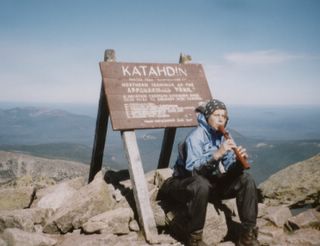There has been an ongoing discussion in our local newspaper , by one of our op ed columnists and now on the radio and in blogs about double dipping public employees, those who have retired, collect their retirement and then are re-employed. At first, I was just going to post a comment on Jill's blog, but I got carried away, so I wrote my own post on the topic.
I am a double dipping teacher. I am saving taxpayers in my district a lot of money. First, I chose to retire at 55 with 30 years. I was at the top of the salary schedule based on education and experience. When I retired, a young teacher took that position at step one on the salary schedule. I could have continued to teach and collect my salary plus benefits. This would also have given me greater benefits when I eventually retired.
This year, I am working part-time tutoring at a local school district while collecting my pension benefits. I am paid hourly and get no health benefits. Because STRS no longer pays any benefits for spouses and only part of mine, I paid over $8,000 in health insurance. The district that hired me is getting a deal. I am still paying into STRS and so is the district. I will never collect social security benefits even though I paid into the system.
When looking at the difference between private employment and public employment, it is good to examine some of the perks that those who are in private employment get that public employees do not. My brother is an accountant who works for a private company. Here are some of the perks he has gotten that I did not. Over his career, he has made a lot more money than I have. He has a 401 K plan that both he and the employer have paid into. He has gotten profit sharing, stock and yearly bonuses as part of his compensation.
My brother has not chosen to get his master’s degree, but if he would have done so, the company would have paid for it and given him increased salary upon completion. For me it was not a choice; I had to continue my education to keep my certification. I did choose to get the equivalent of two master’s degrees and did receive a higher compensation because of that, but I paid for those degrees myself. He traveled on company business and got the frequent flyer miles for his vacation. His company has treated him and his family to sporting events, meals, etc. Many of those who are employed in the private sector get a car allowance. For six years, I used my own car on the job as a special education work-study coordinator and was paid mileage that barely covered the gas. When they moved my brother to
My daughter is now a teacher. She graduated 11th in her high school class of 400 and magna cum laude from her university. This June, she will receive her master’s degree from OSU, a degree she is expected to get to keep her teaching license and be considered a “highly qualified teacher” in her field. She has paid for most of this degree. Although her school district has provided partial compensation based on the number of teachers in the district who are going to school each year, it has not paid even half of the expense. In many districts, there is no money at all to pay for the required additional education.
As a graduating senior, my daughter discussed her career options with me. As she weighed the pros and cons of her various options, education lost out as far as compensation and even status. If she would have worked as hard at almost any other occupation as she has at this one, she would be making a lot more money. There were two factors, however, that persuaded her to go into this field. First, she loves children and knows that she is touching lives by what she is doing each day. Second, while the compensation isn’t good by comparison to other careers, she can have a reliable income and a retirement that will meet her needs and the needs of her family. That retirement is part of what she will earn as a teacher, and when she is eligible to retire, I hope that she will have the option to collect it and keep working in public education if she desires to do so. If she does, she will be doing the taxpayers a favor.
In the meantime, if the taxpayers want highly qualified young people like my daughter to enter public employment, they need to remember that the retirement benefits they are promised provide at least part of the incentive to give up more lucrative options in the private sector.

5 comments:
My dad does this too and saves his district tons of money. And they can't get enough teachers anyway. So it helps the district helps my parents. Given the YEARS of service my dad and many other teachers have given, many underpaid years, I may add, I think it is a great plan. Yay! for "double dipping"
Thanks, Elizabeth and bravo to your dad for loving teaching enough to continue giving to kids in his retirement.
Fantastic post, Cee Jay. I actually forwarded a link to it to Regina Brett. I hope she has a moment to read it.
Thanks, Jill. I actually sent her an e-mail too after her oped came out.
GMTA. :)
Post a Comment